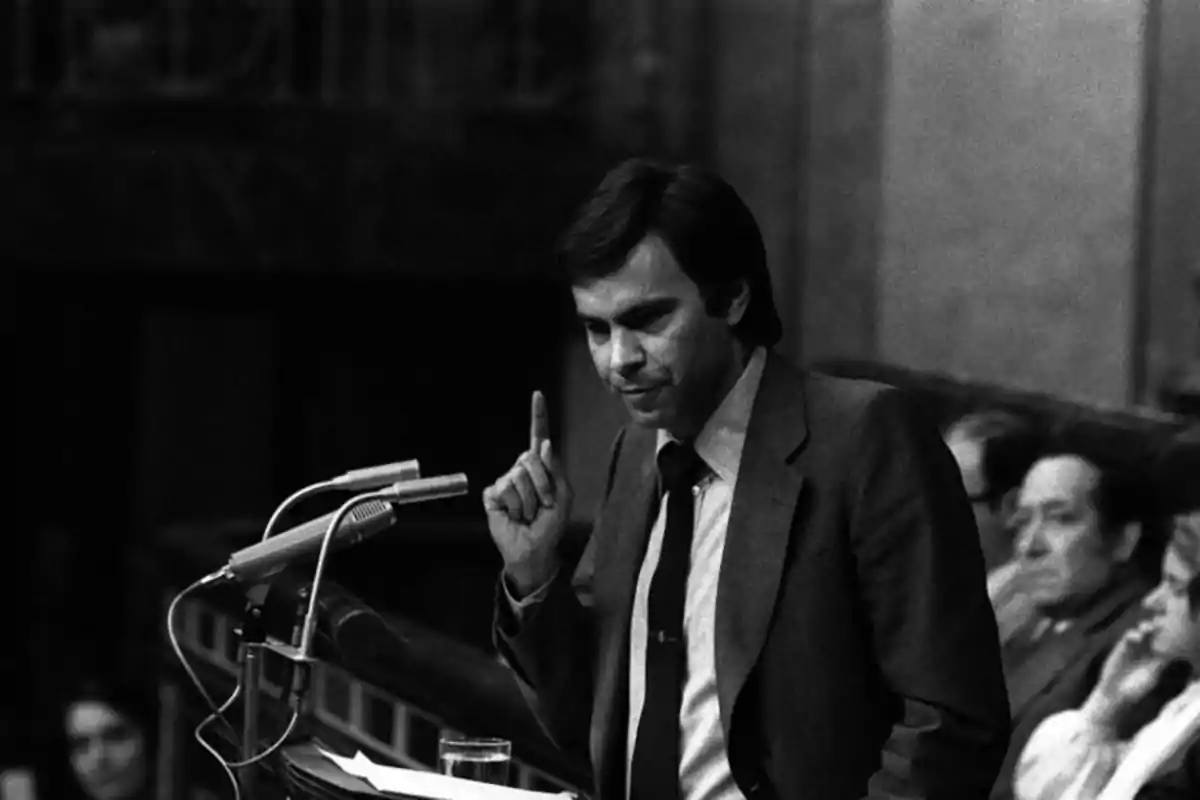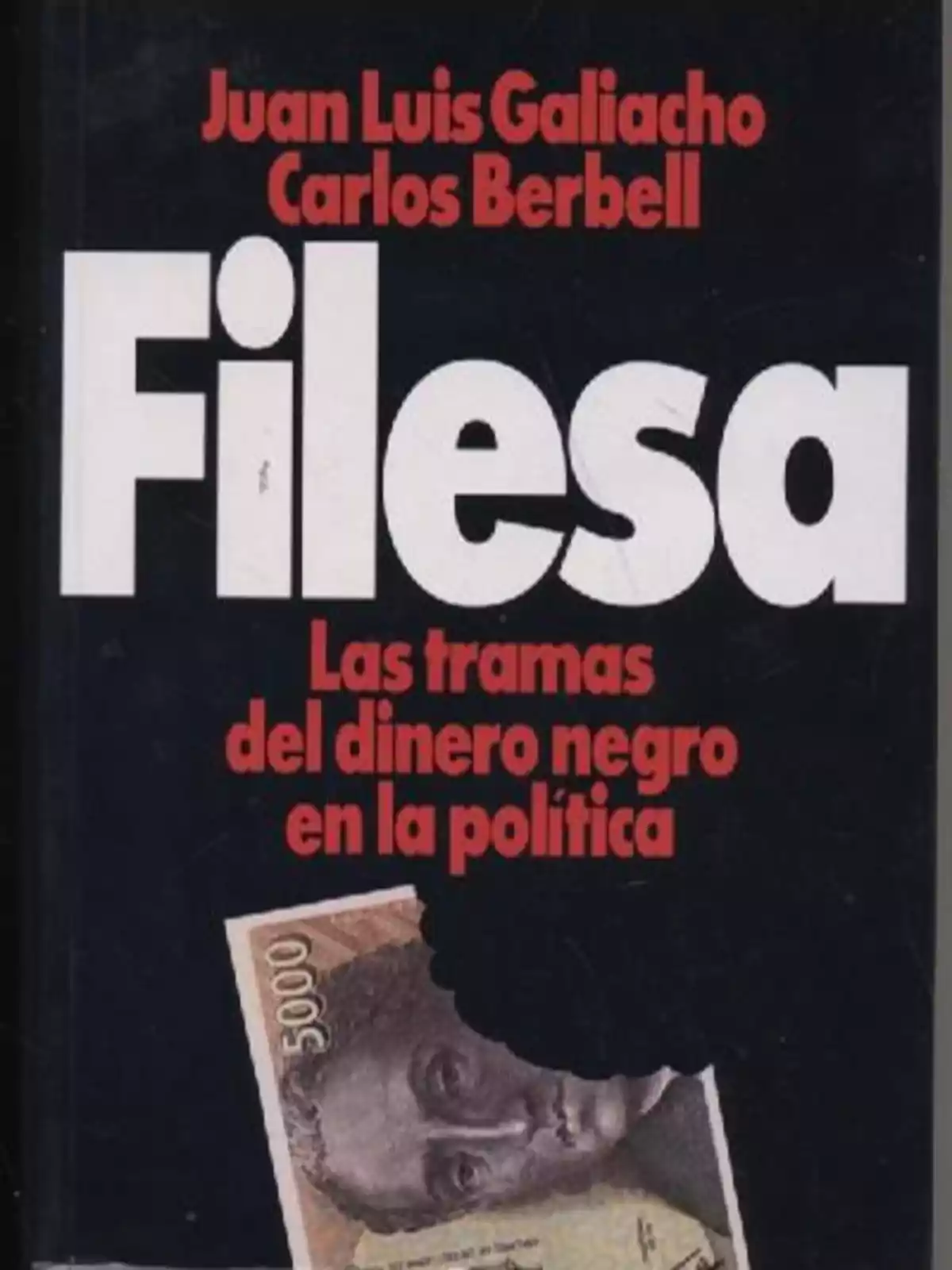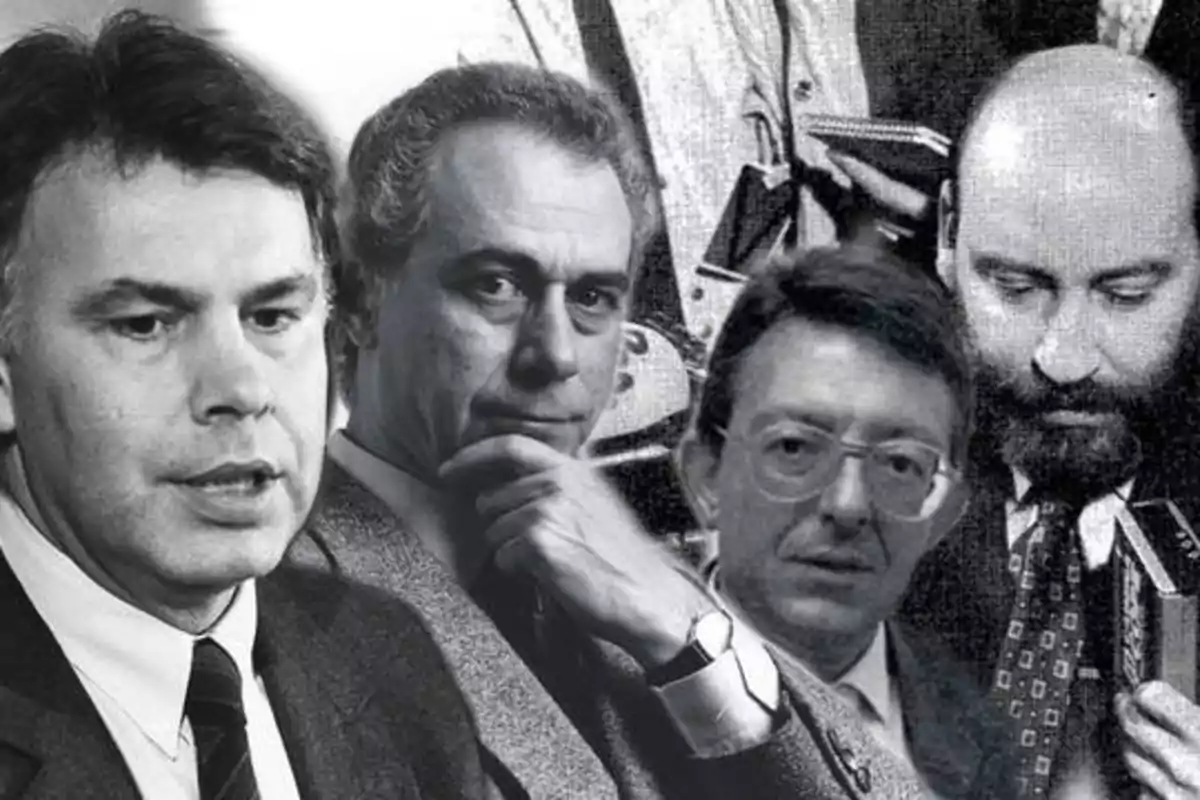
Felipe González: 41 years in La Moncloa, with Filesa as the main controversy
Felipe González governed from 1982 to 1996, and his term was marked by the PSOE financing scandal
Felipe González and Alfonso Guerra, who was his comrade during much of his political career, met while studying at the University of Seville. Both created a political project after the death of the dictator Francisco Franco in 1975. It was not until seven years later, in 1982, when Felipe González saw how the efforts of all those years were rewarded. On October 28, 1982, PSOE became the winning party in the general elections. On December 2, Felipe González was sworn in as President of the Government. Today marks 41 years since this event.
Felipe González thus broke four years of leadership by Adolfo Suárez's Union of the Democratic Center, who was President of the Government until 1981, being succeeded by fellow UCD member Leopoldo Calvo Sotelo after Suárez's resignation.
The criticisms of the UCD Government were key for Felipe González to secure the absolute majority in the early elections of 1982. During his government, the country underwent significant modernization, but these years also saw one of the major corruption schemes in this country: the Filesa case, the great black hole in Spanish democracy.
The Filesa case (named after one of the companies in the phantom holding) constitutes one of the most complex and unprecedented scandals of irregular financing of a ruling party (PSOE), which had received more than 1,000 million pesetas (about 2.2 million USD) in its coffers through illicit procedures.

The judicial investigations caused real earthquakes within the socialist ranks. For the first time, a judge searched its federal headquarters on Ferraz Street as if they were common criminals; the trust between Felipe González and Alfonso Guerra was definitively broken; the "guerristas" were removed from the central core of the "apparatus" and the President of the Government had to call early general elections in June 1993, after the three judicial experts assigned to the case delivered a devastating report that proved the connections between the Filesa holding and PSOE.
The need for more funding
For its members, PSOE was the chosen organization to put Spain in its place within the international arena and to ensure that society, after forty years of Francoism, would become more just, supportive, and free. The words of Felipe González and his then number two, Alfonso Guerra, were received as gospel.
Over the years, socialist membership grew. However, this increase did not bring with it a rise in assets or finances. The dues never represented a serious source of funding. When they were collected, they covered only a minimal part of organizational needs. For this reason, the top socialist leaders were aware that they needed money if they wanted to take part with a guarantee of victory in upcoming elections. Every time PSOE participated in general elections, it cost its coffers more than 1,200 million pesetas (about 2.6 million USD), and the same happened when regional and municipal elections were called.
PSOE leaders soon solved this dilemma. In a very easy way: by selling their soul to the Devil. Shortly after the municipal elections of April 3, 1977, in which they achieved their first major victory, they began to finance themselves with commissions from cleaning contracts, construction, rezoning... everything that municipal power could offer. Later, the system would be applied in the same way from central government and from many of the regional governments. This practice would be kept secret until December 1989, when the first of PSOE's major financial scandals broke out, the Juan Guerra case, one of the party's so-called "fixers" and brother of the then Vice President of the Government. The socialist leaders had already moved from the campaign bus to the private jet, and from ham and cheese sandwiches to the delicacies of five-star restaurants.

To try to alleviate the weak financial health of Spanish political organizations, the Political Parties Financing Law was passed in 1987 by parliamentary consensus. The reason given at the time was the need to address a historical necessity and establish a legal framework to control the finances of the various political parties. Until then, the well-worn system of the briefcase was not criminally punished, as there was no legal regulation on the matter. With the approval of the new Law, PSOE gave up its main system of covert financing, but in exchange received strong compensation from the State coffers.
The creation of Filesa
Socialist ideologues began to devise a new formula to obtain easy and quick money. For this reason, as this cycle ended, a handful of leaders created in Barcelona the holdingFilesa, whose cornerstone was the consulting company Time Export S.A., owned by socialist deputy Carlos Navarro Gómez and the also socialist senator José María Sala Grisó. This group of companies laundered the black money from commissions through invoices issued for non-existent technical reports. It was a more sophisticated and formal way of carrying out illicit financing.
Thus, the Filesa scheme became the main source of irregular income for PSOE, parallel to the traditional route of the party's "fixers," such as Aida Álvarez, Sotero Jiménez, Juan Carlos Mangana Morillo, or Eduardo García Basterra, the right-hand man of former PSOE president Ramón Rubial. The commissions on the total amount of the operation ranged from 1.5 percent to 3.5 percent, and even 4.5 percent in exceptional cases. The Filesa holding became the vehicle for collecting commissions whose value amounted to more than 1,000 million pesetas (about 2.2 million USD), part of which was used to cover the expenses of the various elections held in 1989. With these "extraordinary" funds, PSOE secretly and by far exceeded the campaign spending limit imposed by the Central Electoral Board. This way, it competed at an advantage over its rivals when reaching citizens with a greater guarantee of success.
Carlos Rodríguez Bono and Viajes Ceres
The Filesa corruption network was revealed twenty-seven years ago by the director of elcierredigital.com, Juan Luis Galiacho, in his book "Filesa: Las tramas del dinero negro en la política". In this book, written together with the great journalist Carlos Berbell, the connection of Carlos Rodríguez Bono, cousin of the all-powerful and omnipresent former socialist minister Jose Bono Martínez, with the Viajes Ceres travel agency, one of the many pieces of the scheme, was also uncovered.

The socialist scheme, labeled a criminal organization, focused in this case on the funds released by Imserso between 1988 and 1990. These funds covered the vacation program—transportation and hotel stays—for up to 250,000 elderly people. However, much of these funds was diverted using the same shell companies as in the Filesa and Malesa cases, with which Ferraz pocketed about six million euros, according to the Supreme Court ruling in 1997.
Among those prosecuted for fraud, asset stripping, and embezzlement of public funds is Carlos Rodríguez Bono, cousin of the former Minister of Defense and former socialist president of Castilla-La Mancha, José Bono.
The entry of Filesa into Viajes Ceres became definitive in January 1989. At that time, Time Export took 20 percent of the shares and Luis Oliveró, on the recommendation of deputy Carlos Navarro, became a member of the board of directors.
In March 1989, a new group headquarters was opened in Madrid, at number 9 Jorge Juan Street, in the city center. On the second floor of this building, a whole series of shell companies that the men of Viajes Ceres had created was set up to divert funds from the senior citizen programs.
Some of these companies also had another office located at Paseo de la Castellana, 141. There were Kartel de Inversiones, Omni Video, and Proyectos e Inversiones Inmobiliarias, all of them owned by the cousin of President José Bono, Carlos Rodríguez Bono.
The protagonists of the Filesa case
One of the names linked to the Filesa scheme was the late Guillermo Galeote, responsible for creating the entire structure together with the Catalan Carlos Navarro. Galeote was chosen to replace Emilio Alonso Sarmiento as Finance Secretary during PSOE's 31st Federal Congress, held in Madrid between January 22 and 24, 1988.

Galeote then maintained a close romantic relationship with PSOE's Secretary of International Relations, senator and MEP Elena Flores Valencia, with whom he met in an apartment in the Argüelles neighborhood of Madrid. Elena Flores's influence over Guillermo Galeote soon became apparent. Her brother, Alberto Flores, was appointed by the party as the main shareholder of the Filesa holding and its delegate in Madrid. Alberto Flores, a tax advisor by profession, was the trusted man that the Ferraz apparatus placed in the Filesa structure to balance the weight exerted by Navarro's Catalans.
However, all members of the Executive knew that Guillermo Galeote's role in charge of finances was secondary. His specialty was in electoral analysis and campaign preparation, together with Alfonso Guerra. The person responsible for administration and accounting was Carlos Navarro, who acted as the true shadow Finance Secretary. The Catalan arrived with a reputation as a tough negotiator with banks, whose leaders he treated in a despotic manner.
Galeote and Navarro came to PSOE's finances to save the party from its dire accounting situation. This was confirmed by an internal PSOE report, prepared by Finance Secretary Emilio Alonso Sarmiento for the 31st Congress, at which he left his post. Following the report, Galeote and Navarro created, to save this situation, the Filesa scheme, the great scandal of irregular financing of the Spanish Socialist Workers' Party that is still remembered today, 41 years after Felipe González's first investiture.
More posts: